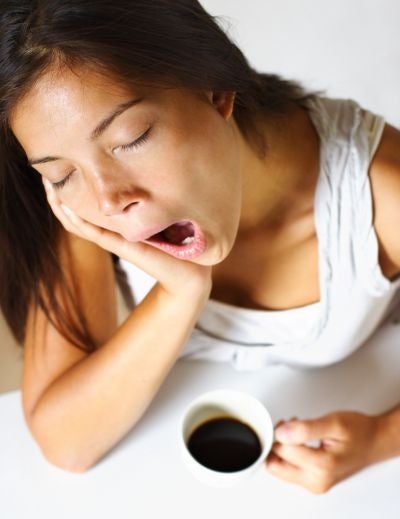Your support helps us to tell the story
From reproductive rights to climate change to Big Tech, The Independent is on the ground when the story is developing. Whether it's investigating the financials of Elon Musk's pro-Trump PAC or producing our latest documentary, 'The A Word', which shines a light on the American women fighting for reproductive rights, we know how important it is to parse out the facts from the messaging.
At such a critical moment in US history, we need reporters on the ground. Your donation allows us to keep sending journalists to speak to both sides of the story.
The Independent is trusted by Americans across the entire political spectrum. And unlike many other quality news outlets, we choose not to lock Americans out of our reporting and analysis with paywalls. We believe quality journalism should be available to everyone, paid for by those who can afford it.
Your support makes all the difference.When people do not get enough sleep, they tend to make overly optimistic decisions and may be more prone to risky gambling, US researchers said Tuesday.
The study published in the journal Neuroscience provides scientific evidence for what casino managers have long known - that flashing lights and ringing slot machines enourage gamblers to keep going until their money is gone.
Scientists used magnetic resonance imagining (MRI) to examine the brains of people who had spent a night of disturbed and shortened sleep compared to their better-rested counterparts.
The scans showed increased activity in the parts of the brain that assess positive outcomes, and decreased activity in the areas that process negative outcomes.
"Using a risky decision-making task, we showed that sleep deprivation shifted most persons' bias from avoiding loss to pursuing gain," said the study by Duke University researchers in North Carolina and Singapore.
The study examined 29 healthy adult volunteers with an average age of 22, and asked them to perform a series of economic decision-making tasks after a normal night of sleep and again after a night of sleep-deprivation.
Sleep deprivation "appears to create an optimism bias; for example, participants behave as if positive consequences are more likely (or more valuable) and as if negative consequences are less likely (or less harmful)," it said.
Drinking caffeine, getting fresh air or exercising are not enough to combat the effects of fatigue, said lead author Vinod Venkatraman, a graduate student in Psychology and Neuroscience at Duke.
"Late-night gamblers are fighting more than just the unfavorable odds of gambling machines; they are fighting a sleep-deprived brain's tendency to implicitly seek gains while discounting the impact of potential losses," said Venkatraman.
ksh/sg

Join our commenting forum
Join thought-provoking conversations, follow other Independent readers and see their replies
Comments